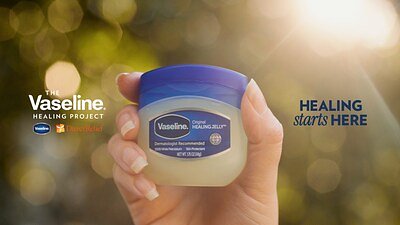
Beyond Relief: Vaseline & Direct Relief Tackle Long-Term Skin Health in Vulnerable Communities
A new partnership focuses on consistent dermatological care after disasters, addressing systemic health inequities in Los Angeles and New Orleans. This initiative demonstrates a shift towards sustainable corporate social impact.
Beyond Relief: Vaseline & Direct Relief Tackle Long-Term Skin Health in Vulnerable Communities
NEW YORK, NY – November 19, 2025
Filling the Gap: A New Approach to Disaster Recovery
Vaseline and Direct Relief are joining forces to address a critical, often overlooked aspect of disaster recovery and long-term community health: consistent access to dermatological care. The organizations have pledged $100,000 to fund mobile medical units in Los Angeles and New Orleans, specifically targeting communities impacted by natural disasters and systemic barriers to healthcare. While immediate relief efforts often prioritize urgent medical needs, this partnership aims to provide sustained support for skin health – a fundamental component of overall well-being.
The initiative will see funding split between Venice Family Clinic in Los Angeles and Baptist Community Health Services in New Orleans. Both organizations are deeply rooted in their communities, serving vulnerable populations often overlooked by traditional healthcare systems. The mobile units will provide comprehensive skin health services, including dermatology consultations, wound care, and preventative education. “There’s a crucial need to move beyond simply responding to crises and begin building long-term resilience within communities,” explained a representative from Direct Relief. “Skin health is often an afterthought, but it’s directly linked to quality of life, and it can be severely compromised in disaster situations or due to chronic health conditions.”
Addressing Health Disparities in Underserved Communities
The partnership focuses on communities facing unique challenges. In Los Angeles, the mobile units will prioritize care for the homeless population, who are disproportionately affected by skin infections and conditions exacerbated by living outdoors. The units will also serve communities recovering from recent wildfires, where exposure to smoke and ash can trigger or worsen skin sensitivities and respiratory problems. In New Orleans, the focus will be on the Ninth Ward, a neighborhood still rebuilding after Hurricane Katrina, where residents continue to face systemic barriers to healthcare access. “For decades, the Lower Ninth Ward has faced a multitude of challenges,” says a community health worker in New Orleans. “Access to specialized care like dermatology has always been limited. This partnership is a welcome step towards addressing those longstanding inequities.”
Access to dermatological care is often a significant challenge in low-income communities, where individuals may lack insurance, transportation, or the ability to take time off work for appointments. This can lead to delayed diagnoses, untreated skin conditions, and poorer health outcomes. The mobile units are designed to overcome these barriers by bringing care directly to communities that need it most. “We’re aiming to meet people where they are,” said a representative from Venice Family Clinic. “By removing transportation and logistical hurdles, we can ensure that everyone has access to the dermatological care they deserve.” The initiative recognizes skin health as a critical social determinant of health, impacting not only physical well-being but also mental health, social integration, and economic opportunity.
A Shift Towards Sustainable Corporate Social Impact
The partnership between Vaseline and Direct Relief represents a broader trend of companies moving beyond traditional philanthropy towards creating sustainable social impact. While charitable donations remain important, many businesses are now seeking to address the root causes of social problems and create long-term solutions. Vaseline, a brand owned by Unilever, has made a commitment to improving skin health as part of its broader sustainability agenda. “We believe that businesses have a responsibility to contribute to the well-being of the communities they serve,” says a representative from Vaseline. “Our partnership with Direct Relief allows us to leverage our resources and expertise to make a meaningful difference in the lives of vulnerable populations.”
This initiative aligns with the growing recognition that social responsibility is not just a moral imperative, but also a business imperative. Consumers are increasingly demanding that companies demonstrate a commitment to social and environmental issues. Employees are more likely to be engaged and motivated when they work for organizations that align with their values. Investors are increasingly incorporating environmental, social, and governance (ESG) factors into their investment decisions. “Companies that prioritize social impact are more likely to build strong brands, attract and retain talent, and achieve long-term financial success,” explains a social impact consultant. The partnership between Vaseline and Direct Relief serves as a model for how businesses can create shared value – generating both social and economic benefits. Unilever’s commitment, with the ‘Healing Project’, already reaching 27 million globally and aiming for 33 million by 2030, demonstrates a long-term dedication to addressing skin health issues, shifting beyond a simple donation and investing in a sustainable solution. This initiative exemplifies a conscious effort to address the long-term healthcare needs of communities impacted by disaster and systemic inequities, ensuring consistent care that extends beyond initial relief efforts.
